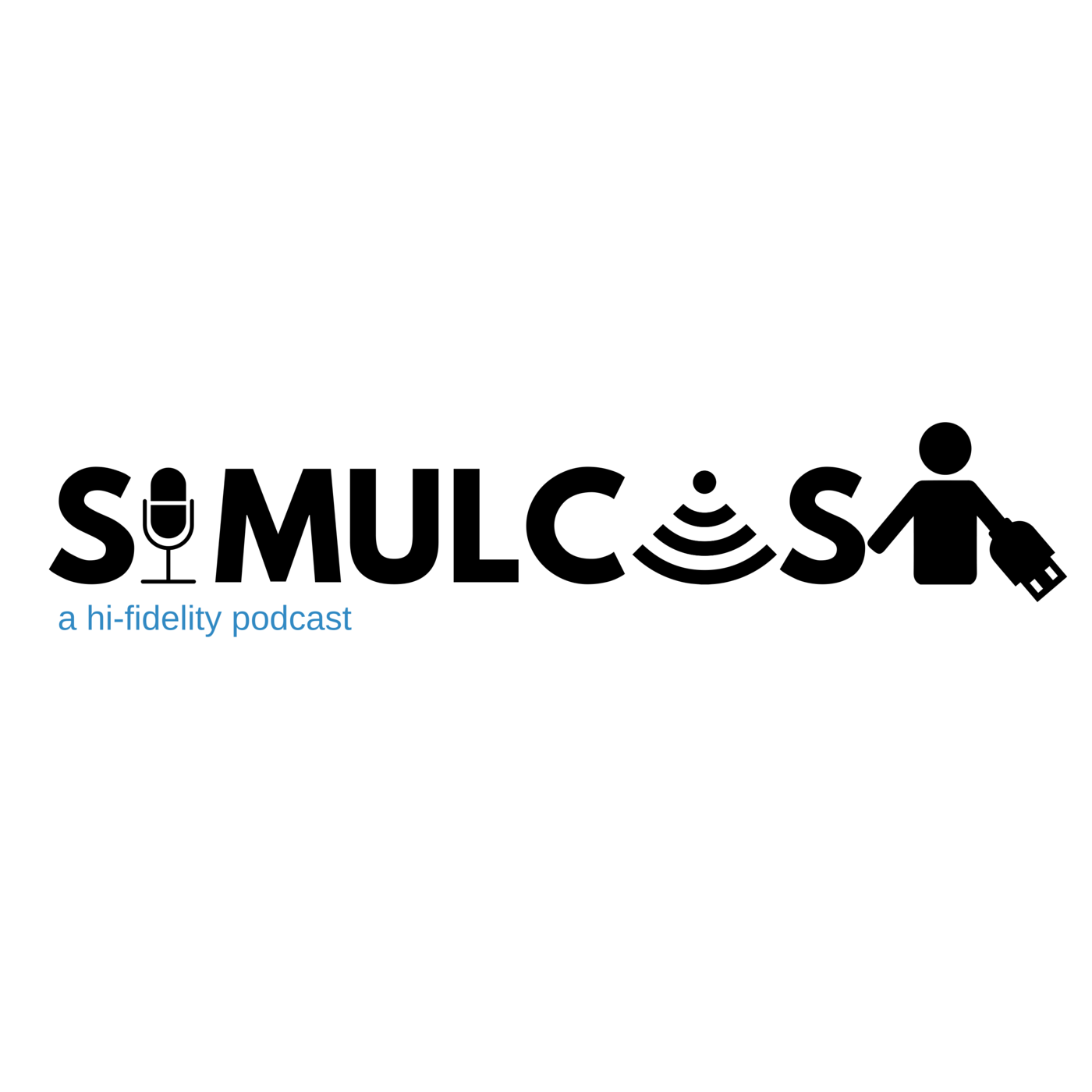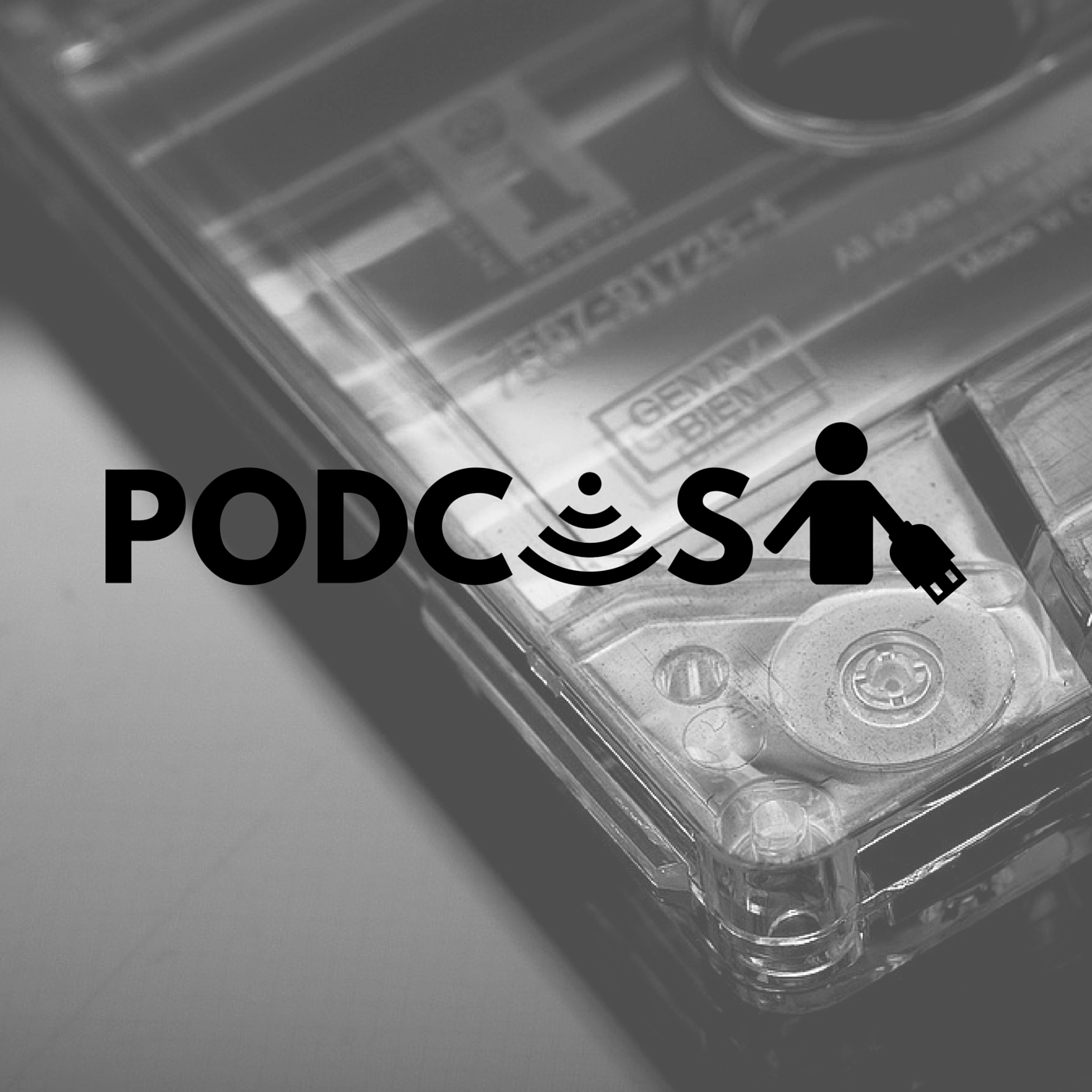
277.2K
Downloads
219
Episodes
A podcast dedicated to the discussion of healthcare simulation. Debunking dogma, demystifying jargon and translating knowledge. Hosted by Victoria Brazil, Jesse Spurr & Ben Symon
A podcast dedicated to the discussion of healthcare simulation. Debunking dogma, demystifying jargon and translating knowledge. Hosted by Victoria Brazil, Jesse Spurr & Ben Symon
Episodes

Monday Oct 02, 2017
Simulcast Journal Club Podcast 8
Monday Oct 02, 2017
Monday Oct 02, 2017
In our September journal club podcast Ben and Vic discuss the paper of the month
Chung HS, Dieckmann P, Issenberg SB. It is time to consider cultural differences in debriefing.
Simulation in Healthcare : The Journal of the Society for Simulation in Healthcare.
2013 Jun;8(3):166-70. doi: 10.1097/SIH.0b013e318291d9ef.
We then reviewed some recent papers
Thomson FC, Morrison I, Watson WA ‘Going Professional’: using point-of-view filming to facilitate preparation for practice in final year medical students BMJ Simulation and Technology Enhanced Learning Published Online First: 30 June 2017. doi: 10.1136/bmjstel-2017-000224
Davison M, Kinnear FB, Fulbrook P Evaluation of a multiple-encounter in situ simulation for orientation of staff to a new paediatric emergency service: a single-group pretest/post-test study BMJ Simulation and Technology Enhanced Learning Published Online First: 28 June 2017. doi: 10.1136/bmjstel-2016-000138
Lovett S, Roche J, Hunter S, Symonds I, Tomlinson N, Gagnon R, Charlin B, Mattes J, Respective value of the traditional clinical rotation and high fidelity simulation on the acquisition of clinical reasoning skills in medical students – A Randomized Controlled Trial., MedEdPublish, 2016, 5, [2], 9, doi:https://doi.org/10.15694/mep.2016.000037
In our discussion we also talked about the Script concordance test and more reading here if interested.
And gave a shout out to mededpublish.org as a potential destination for authors interested in open access and post publication peer review processes.
And Ben introduced next month’s paper
Karen L. Lewis et al. The Association of Standardized Patient Educators (ASPE) Standards of Best Practice (SOBP). Advances in Simulation 2017 2:10 https://doi.org/10.1186/s41077-017-0043-4
Please add your comments on the website - looking forward to another great discussion
Vic

Tuesday Sep 26, 2017
Advances in Simulation: Tracing the Prescription Journey
Tuesday Sep 26, 2017
Tuesday Sep 26, 2017
In the third of our series with Advances in Simulation, we discuss Tracing the prescription journey: a qualitative evaluation of an interprofessional simulation-based learning activity.
Cooke et al. evaluated an interprofesional simulation activity involving medical and pharmacy students, using a qualitative analysis. The simulation involved followed a patient journey from presentation in a community setting, through an assessment and prescribing process, to the dispensing and patient education stages of the patient journey.
Simulcast was fortunate to have Gerry Gormley (@DrGerryG) as our guest author, together with Christy Noble as a discussant.
Gerry is an academic general practitioner and Senior Lecturer in the Centre for Medical Education (CME), Queen’s University Belfast (QUB). His roles there include the lead for educational research, including that relating to simulation based learning in healthcare.
Christy Noble is a pharmacist and Principal Research Fellow (Allied Health) at Gold Cost Hospital and Health Service. Her PhD work reviewed focussed on undergraduate pharmacy curricula, and she is currently researching interprofessional co-supervision and practice-based learning.
Our conversation canvassed the challenges in IPE activities, the specific opportunities afforded by simulation for IPE, and took a dive into some robust qualitative research methods employed by the study team.
Thanks to our guests and to Advances for another wonderful collaborative effort
Victoria

Monday Sep 11, 2017
Official Broadcast: Australasian Simulation Congress - Serious Games Stream
Monday Sep 11, 2017
Monday Sep 11, 2017
Ben Symon covered the “Serious Games” stream at the Australasian Simulation Congress in Sydney. Serious Games “…are those designed for a primary purpose other than pure entertainment”.
The ASC included the Serious Games Showcase & Challenge – Australasia (SGSCA), with a number of outstanding entrants.
Dale Linegar convened the Games section of the ASC. He spoke to Ben about the concept and the competition, including a description of the winner - Opaque Space’s Earthlight – a VR experience of being on the international space station.
He also interviewed Maureen Winn from HETI who developed the ‘Comprehensive Assessment’ game for the Rural Generalist Nurse online learning program.
And finally Ben caught up with Brett Levy from Bilbie Virtual Labs, who are taking a new approach to Australian cultural heritage in the Virtual Kumay

Sunday Sep 10, 2017
Official Broadcast: Australasian Simulation Congress - Day 3 Wrap
Sunday Sep 10, 2017
Sunday Sep 10, 2017
Victoria Brazil and Ben Symon hosted a wrap of Day 3 at the ASC.
Our coverage starts with a session on “Hands off teaching” with Rod Peadon and David Gillespie from Coffs Harbour.
We then covered the final health plenary on The future of healthcare simulation, involving some leading figures from the simulation community. Leonie Watterson from Sydney Clinical Skills and Simulation Centre spoke about the RQI program and a possible future of automated assessment.
Michelle Kelly from Curtin University presented work on the integration of simulation into nursing curricula, from a collaboration that included fellow panel members Phillipa Seaton from University of Otago and Tracey Levitt-Jones from University of Technology Sydney.

Sunday Sep 10, 2017
Official Broadcast: Australasian Simulation Congress - The Exhibitors
Sunday Sep 10, 2017
Sunday Sep 10, 2017
Victoria Brazil interviewed a series of industry exhibitors at the Australasian Simulation Congress in Sydney.
The podcast featured Graeme Foulds from Laerdal Australia, one of the main meeting sponsors, Charles Henden from the Valley General Hospital Virtual Hospital, and some defence simulation from Lockheed Martin.

Monday Sep 04, 2017
Monday Sep 04, 2017
ASPE and Simulated Patients with Cathy Smith at ASC 2017
Simulated Patient methodology has been featured in a number of sessions at the Australasian Simulation Congress in Sydney
Victoria Brazil spoke with Cathy Smith, the current chair of ASPE – the Association of Standardised Patient Educators
We discussed some hot topics in human simulation, together with the recently published Standards of Best Practice (SOBP) in Advances in Simulation.

Monday Sep 04, 2017
Official Broadcast: Australasian Sim Congress - Day 2 Wrap
Monday Sep 04, 2017
Monday Sep 04, 2017
Day 2 at the Australasian Simulation Congress in Sydney
Victoria Brazil and Ben Symon hosted a wrap of Day 2 at the ASC, with a focus on Serious Games and interprofessional education.
Jeffrey Brand from Bond University gave an insight into the panel discussion and the state of the art for Serious Games in Australia.
The Simhealth stream offered a plenary session on interprofessional education, chaired by Cathy Smith. She and John Paige spoke to us after the panel and offered some insights into best practice in IPE in 2017.

Wednesday Aug 30, 2017
Official Broadcast: Australasian Sim Congress - In Situ Sim
Wednesday Aug 30, 2017
Wednesday Aug 30, 2017
Victoria Brazil and Ben Symon interviewed panelists from the final plenary for Day 1 at the ASC
We heard from Alison Michaels and Steph Barwick about their Popup simulation program in Brisbane, and Cameron Knott from Victoria about how ISS can run in hospital practice. Simon Wilson then shared his insights into GP simulation, and Dylan Campher from CSDS in Queensland gave us an idea about how simulation centres are supporting ISS and patient safety in new ways.

Wednesday Aug 30, 2017
Official Broadcast: Australasian Sim Congress - Day 1 Wrap
Wednesday Aug 30, 2017
Wednesday Aug 30, 2017
Day 1 at the Australasian Simulation Congress in Sydney
Victoria Brazil and Ben Symon hosted a wrap of Day 1 at the ASC, with a focus on teamwork and In situ Simulation.
Keynote speaker Eduardo Salas presented the highlights of 30 years of teamwork research, and we interviewed him after the session, concentrating on some ways forward for research and practice in this area. We also captured a few delegate perspectives.
We also spoke to ASC convenor Jessica Stokes- Parish about running simulations on stage and wat the exhibitors had in store for us.

Tuesday Aug 29, 2017
Advances in Simulation: From Research to Policy, How Much Evidence is Enough?
Tuesday Aug 29, 2017
Tuesday Aug 29, 2017
In the second of our series with Advances in Simulation, we consider Ryan Brydges 2016 editorial - From simulation research to education policy: how much evidence is enough?
In this article he considers the question - What level of evidence is required for translation of healthcare simulation research to policy? or institutional practice ?
Ryan uses the specific example of recent changes to nursing training in the USA as a result of a large simulation study. The editorial considers issues of methodology and ‘tipping points’, and comes from the perspective of a researcher who has authored a number of large scale systematic reviews in healthcare simulation
The study discussed is the NCSBN National Simulation Study: a longitudinal, randomized, controlled study replacing clinical hours with simulation in prelicensure nursing education. By Hayden JK, Smiley RA, Alexander M, Kardong-Edgren S, Jeffries PR in the Journal of Nursing Regulation. 2014;5(2):S3–S40.
In a short period of time this study has led to large scale changes in nursing education whereby up to 50 % of clinical hours in undergraduate nursing training can be replaced by simulation. Note this has also brought with it some clarity in standards around simulation within those programs.
Simulcast was fortunate to have Ryan as our guest author of the editorial, together with Suzan Kardong Edgren, one of the authors of the nursing simulation study, as well as Mary Fey fromm Center for Medical Simulation in Boston as a discussant.
Ryan Brydges (@rbrydges) is a health professions educator from Toronto Canada, and Senior Editor at Advances.
He’s the professor in technology enabled education at St Michaels’s hospital/ University of Toronto, and the research directors at the simulation centre there. He’s been involved in systematic reviews and meta-analysis on large landmark studies in sim and technology enabled learning – research gate profile
Mary Fey is the Associate Director of the Simulation Educator Training program (IMS) within the Centre for Medical Simulation in Boston. She has a nursing and academic background, with a PhD University of Maryland in Baltimore.
Suzan "Suzie" Kardong-Edgren is a professor and director of the RISE Center at the School of Nursing and Health Sciences at Robert Morris University.
The podcast offers a deep dive into the impact of simulation research and the politics of policy and change. We discussed contemporary influences on education more broadly, such as the Carnegie Foundation, and other educational policy changes such as the Competency by Design initiative in Canadian medical training.
However the winner on the day was the discussion itself – a wonderful example of how those with different perspectives – clinical, research, practice and education – can have robust and respectful conversations.
Thanks to our guests and to Advances for another great collaborative effort
Victoria
